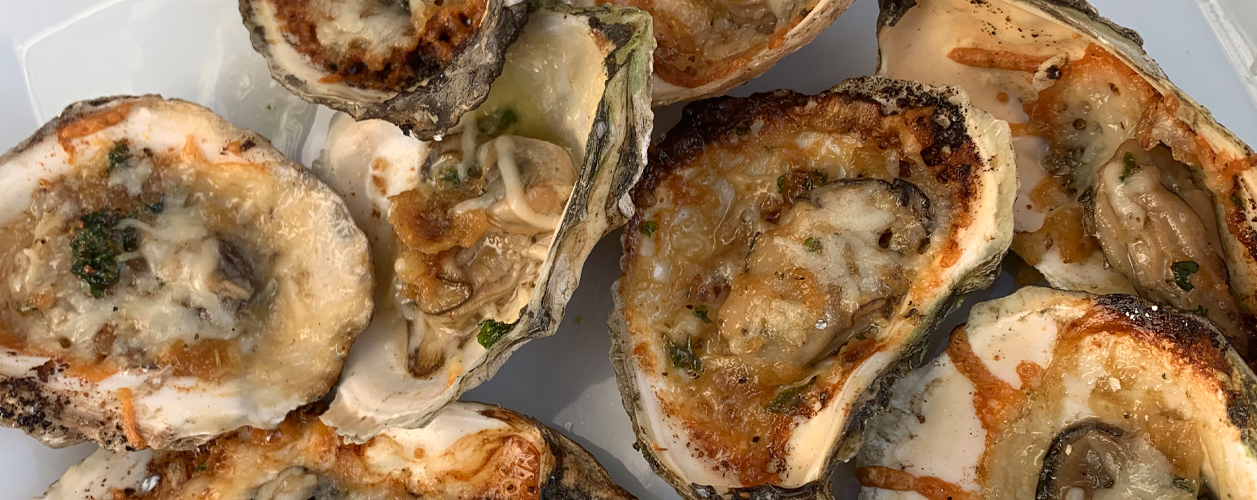Two paths to culinary success
by Hugo Bravo

The Salvation Army Boston Kroc Center’s Culinary Arts Training Program prepares students for career paths into the restaurant industry all over the Boston area. This year, Mika Winder and Samantha Anson, two graduates from the program in 2017, are looking forward to opening their own restaurants.
‘Pearls’ of legacy

For most of her adult life, Winder was a mortgage broker. She did stints in hospitality when the housing market became unstable. But in 2017, while coming back from a trip to Napa, California, for her birthday, she thought about the future of her career.
“I thought about my three daughters and how I also wanted to leave something for them,” says Winder. She then decided that her legacy would be a restaurant.
Winder enrolled in the Culinary Arts program at the Salvation Army’s Ray and Joan Kroc Corps Community Center in Boston. Besides the lessons she learned in food preparation from Chef Timothy Tucker, she says that the program put her on the path and in the mindset for running her own business.
“For most of my job experience, I was making my own schedule and deciding what time I would get up in the morning,” says Winder, laughing. “Now, I was enjoying the discipline and accountability. Working with others for a common goal prepared me to work with partners in business and with food and drink vendors.”
“For Chef Tucker, it was never just, ‘Today we’re cooking Chinese food.’ But rather, ‘Today, we’re going to learn how the people of China live, their culture, and how it influences what they prepare,’” says Winder.
During a trip to New Orleans with her husband Malik, Winder decided what type of restaurant she wanted to open. “When we tried grilled oysters for the first time, we looked at each other and said, ‘We don’t get these at home. We could sell these.’ That was how my husband got on board.”
The Winders and the Pinckneys, another business-minded couple who reached out to Mika to offer an opportunity to work together even before she finished the Kroc Culinary Arts Program, will soon open The Pearl, a seafood and oyster bar in Dorchester. Mika says that COVID-19 delayed the opening of The Pearl and brought on unexpected financial issues.
“It’s hard to open in a pandemic and to gage what the public is comfortable doing during these times. Will they want to sit outside when the temperature drops? Will they be more open to packages, such as at–home seafood boils?” asks Mika. “No matter what, I remind my partners that it is on God’s time when we finally open.”
As The Pearl waits to make its debut, Winder hopes that her restaurant becomes a staple in the Dorchester community, and brings hope to other future restaurant owners. She wants them to be encouraged to claim their own legacy in hospitality, just as she decided to do on that flight back from Napa.
“We had a hard time getting the funding and help to start,” says Winder. “But now, we hope that what we’ve done here at The Pearl will inspire others who want success to do it too.”
For more information on The Pearl, visit www.thepearlsouthbay.com.
A ‘spot’ for a new generation

“My grandmother and my mother were amazing cooks,” says Anson, owner of Sam’s Spot Catering. “We always said to my mom that she could sell her fried chicken. But she felt that taking care of us was more important; the idea of her starting her own business never really came up.”
Samantha saw herself as the new generation of her family that could make the jump from cooking for loved ones to cooking as a career. She went to culinary school before attending the Salvation Army Boston Kroc Culinary Program. There, she immediately took in every bit of the experience, crafting connections and working under a teacher who saw her as more than just a number in a class.
“There was always something new to learn, and we had the food and supplies at our fingertips to do it. If we suggested something to prepare, Chef Timothy Tucker would find us what we needed,” says Samantha. “I became addicted to my classes.”
In 2014, Anson began to prepare and sell food out of her grandmother’s house and promoting herself on social media. It became Sam’s Spot Catering, specializing in traditional Southern and Caribbean cuisine. As her business grew, she was able to purchase space to book events to go along with the food. Though it was the natural next step in her catering career, it also took the biggest hit during COVID-19.
“At the beginning of the pandemic, people still ordered food, but it fluctuated. The events completely stopped,” remembers Anson. “It wasn’t until the summer that events slowly came back, and our space was hosting smaller, 25 people–minimum gatherings.”
The pandemic has also pushed Samantha to open a traditional brick–and–mortar location. She says she understands the challenges of expanding her business in such a definitive way, but she also knows the benefits of Sam’s Spot having a real spot.
“I wasn’t exactly planning it, but it all came together when we started,” says Samantha. “With my own home base, I can prepare food, train staff, take orders, and create revenue even if events stop again. It makes altering our business easier.”
“For Sam’s Spot, it’s now or never,” says Samantha.
For more information on Sam’s Spot, visit www.samsspotcatering.com.

